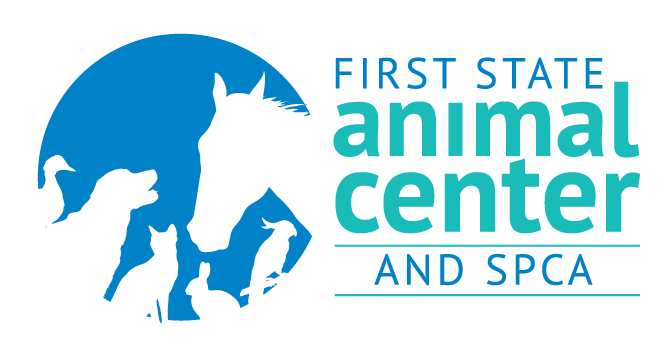I am submitting written testimony in opposition of the animal shelter standards that were written and presented for discussion on February 2015. These standards are lacking clarification in some areas and are overstepping the bounds of oversight in other areas.
If these standards are so important for animal shelters, what about the hundreds of animals sitting in our rescue agencies? These agencies should be subject to the same level of oversight as a brick and mortar shelter.
Minimum Standards of care and treatment: This is an area which is lacking in clarification from Title 16. The intentions of shelter standards should be to set standards for minimum levels of care for animal. As such, there are no standards, for the five freedoms of animal welfare as published by the Animal Welfare Council in 2009. These five freedoms are freedom from hunger and thirst, freedom from discomfort, freedom from pain, injury, or disease, freedom to express normal behavior, and freedom from fear and distress.
Certification and training for euthanasia technicians, acceptable standards, methods, and procedure for euthanasia: This area is overstepping the bounds of oversight. We already have acceptable standards for euthanasia in Title 16; and the American Veterinary Medical Association has guidelines on euthanasia standards already published. These new regulations are requiring renewed training and certification of euthanasia technicians which doesn’t raise the level of professional expertise, just makes additional administrative duties. Since our euthanasia is based on dog control and cruelty investigations, we will require our contracts for these services to supply the necessary resources to meet the new demand.
It should be noted in the OAW dog control recommendation that the FSAC-SPCA has increased costs to provide this dog control service, it was the passage of Title 3, Shelter standards in 2010 that required additional funding to provide the unfunded mandates from the State. It should be expected that additional administrative duties will again raise costs to provide service.
Animal adoption, recovery, and rehabilitation: Where are the requirements for adoption? Missing is a key aspect of shelter/rescue operations. Many of our states animals languish in cages in shelters and rescues for one to three years. All adopted animals must be spayed/neutered, vaccinated, and micro chipped prior to adoption paperwork being finalized. All microchips should be registered with a national company to ensure ease of returning lost pets should the pet become lost.
“Animal agencies should make every attempt to offer more available hours for adoption,” is an example of overreach of authority. Non profits donors and supporters will set the mission based programs to meet the needs of the community. It should not be through oversight from a state agency.
All found pets should be reported to the appropriate animal control agency as a found animal to be recorded in the lost and found registry. All found pets should be listed on a website (since documentation is necessary to provide proof this has occurred, the FSAC-SPCA is only listing on Delaware Craigslist. Our webpage doesn’t allow us to show proof that the animal was posted, therefore, we have changed our operations manual) to allow the lost owners visual identification to find their pet. All lost pets should also be reported to the appropriate animal control agency to be recorded in the lost and found registry. The lost and found registry should be updated at least monthly, to ensure accurate information is on file.
Procedures for inspections and complaints: Processes for inspections and complaints, are not clearly defined. What constitutes a complaint? Is probable cause required? Is the complaint a witnessed event by the RP (Reporting Party)? Is it something they read on line? Is there recourse for unfounded complaints? Are there civil judgments against false harassing complaints?
Record keeping obligations: Record keeping for every animal, every detail of that animal and every disposition of that animal and of course proof that every detail occurred to every animal is a mountainous administrative task for our large intake shelter. We utilize a shelter software program to track every detail of the animals which come to us for a safe place while temporarily homeless. As with any software program, there are limitations to the reports available, and these additional administrative requirements will again require additional resources. By adding additional reporting of 14.2 thru 14.5, how will these requirements help animals be located in shelters?
Let’s finally remember that most nonprofit animal welfare agencies in Delaware are funded by donations, grants and special events. Do our states donors really want their dollars to be used for bureaucracy complaints instead of direct care? Since the doors have been closed to many animals in the last three years, is this going to close more doors to more animals? What is the plan when our nonprofit shelters close because they can no longer afford to provide quality animal care? Is the State ready to accept the deluge of complaints against a government run animal agency? If you look at national trends for arrests of animal shelter employees, they have been government employees who do not have the necessary resources to care for the onslaught of unwanted, lost or abandoned animals.
Additionally we will soon be requiring professional regulation of animal control officers. This process will bring resources to individuals who risk their own personal safety every day to ensure our humans and animals are safe in our state. We are thrilled that this is coming, but will require the approval of the current dog control vendors since the financial outlay will require more funds from their coffers.
Let’s be smart and progressive and give animals the necessary resources they need to find a new home, not languish in a cage for years. The goal should be empty shelters not shelters hoarding animals.
To share your views and opinions, contact Christina Motoyoshi, Deputy Director, Office of Animal Welfare – Christina.motoyoshi@state.de.us or FAX: (302) 255-4621
Review the proposal here: http://regulations.delaware.gov/register/february2015/proposed/18%20DE%20Reg%20622%2002-01-15.htm
